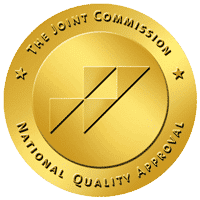
Cognitive Behavioral Therapy for Mental Health and Addiction


Soul Surgery

When it comes to addiction and mental health recovery, there are a variety of program options to choose from. It can be overwhelming to decide on the right treatment for you or your loved one.
Which will be the most successful? Is one option better than another?
Cognitive Behavioral Therapy is an evidence-based recovery tool that has proven beneficial in both addiction and mental health rehabilitation.
In this mental health and addiction blog on the ins and outs of Cognitive Behavioral Therapy, we will be looking at the following:
Cognitive Behavioral Therapy (CBT) is a psychological treatment effectively used in treating a variety of problems, including but not limited to:
CBT is evidence-based, and research points to its effectiveness in improving the functions and qualities of life. It’s even been shown to be more effective than other forms of psychological therapies and psychiatric medications. CBT can be utilized by adults, children, and adolescents.
A specially trained CBT therapist works with their patients to identify negative thought patterns and errors in logic leading to their problems, whether that be depression, marital issues, addiction, etc.

Once identified, the therapist offers practices and methods to change these thought patterns. This can be learning to recognize distorted thinking and disregard it as false or practicing coping skills when negative thoughts emerge. As patients’ problem-solving skills advance, they can better navigate difficult situations and negative thoughts.
CBT was developed in the 1960s by Aaron Beck, an American psychiatrist, and professor at the University of Pennslyvania. Beck’s work focused on the concept that your thoughts, feelings, physical sensations, and actions are interconnected; specific, continuous thinking patterns contribute to emotional problems.
Your core beliefs are deeply held about yourself, others, and the world. Whether these beliefs are positive or negative, accurate or inaccurate, they significantly impact your mental health and how you navigate daily life.
Dysfunctional assumptions are the strict, conditional “rules for living” you adopt. The dangers of these assumptions are that they may be unrealistic and faulty, harming you. An example of a dysfunctional assumption could be, “Unless others love me, I am worthless.”
Negative automatic thoughts are activated or “triggered” involuntarily when certain situations arise. These are the thoughts that deepen depression and hurt self-esteem. For example, if a crowded room causes anxiety, an automatic negative thought may be, “everyone is judging me.”
Here at Soul Surgery, we care about your physical and emotional well-being. Our team of compassionate professionals wants to see you and your loved ones thrive.
Please contact us today to learn more about our programs and how to get started.







Take the first step in your journey to recovery.
"*" indicates required fields